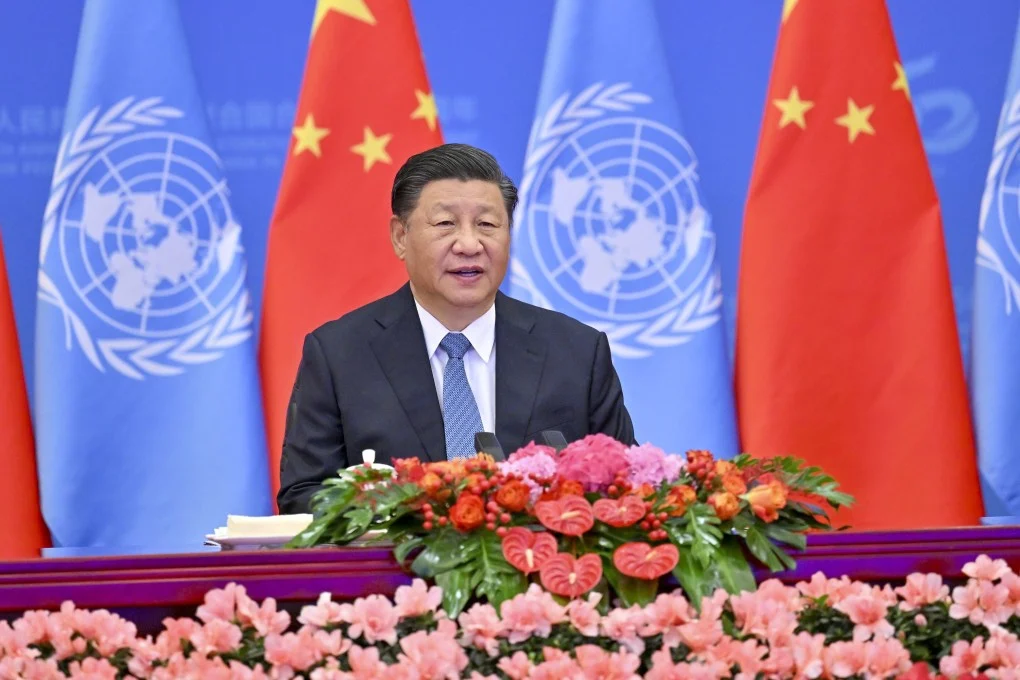Between Vision and Reality: Obstacles to China’s Global Governance Ambitions

Obstacles to China’s Governance Ambitions
Chinese President Xi Jingpin in September 2025 proposed the Global Governance Initiative(GGI), encouraging countries to work together toward a just and equitable world of global governance. This Global Governance Initiative is the fourth global initiative introduced by Mr. Xi in recent years. These include the Global Development Initiative, the Global Security Initiative, and the Global Civilization Initiative.
Mr. Xi assigned five principles of the Global Governance Initiative to his speech personally, adhering to sovereign equality, complying with international rule of law, exercising multilateralism, reserving people centered approach, and aiming at actually taking actions. The support for the initiative has been expressed by some countries, while some others have already announced joining.
Meanwhile, a few Western countries have considered it with skepticism or even in opposition to China’s GGI, interpreting it as a strategic move to change the international standards in a way that would benefit authoritarian governance and state-led development. The U.S., for example, has been consistently accusing China of using its global initiatives, such as GGI, the Belt and Road, and the Global Security Initiative, to undermine liberal democratic values and to challenge the rules-based international order.
GGI is considered a non-transparent entity by US policy analysts and may result in entities like the UN and WTO being circumvented, thereby allowing parallel structures to operate with China leading.
Japan has also sounded a similar note of caution by emphasizing the necessity of following democratic principles and warning against governance models that result in loss of regional autonomy. India has taken part in the SCO Summit but opposed GGI claiming strategic autonomy and citing unresolved border disputes with China.
Their different stance reflects the concern of the Western-aligned countries over the ideological shift and geostrategic consequences of China’s reforms for the world. These criticisms are sourced from Channel News Asia and the European Parliament which shows that there is an increasing gap between China’s vision and the Western standards of governance.
Ideological Basics
The Chinese GGI supports the ideas of sovereignty, non-interference, and Multipolarity. At the 2025 SCO Plus
Summit, President Xi Jinping reminded that China seeks “a just and fair global governance system” where the sovereignty of each state is the primary consideration. The very concept differs drastically from the ones led by the West such as the UN Charter and G7 principles which advocate for liberal democracy, human rights, rule of law, and many more. The Western models set out clear policies that should be transparent, inclusive, and accountable both domestically and internationally.
Global Institutions
The GGI of China is in favor of changing the current institutions like the UN and WTO to be more representative of the developing world’s interests. As per Chinese officials, international institutions are currently very much influenced by the West and are not quite representative of the Global South. On the other hand, Western-borne plans take the institutions to be in their present form but with the ability to face new challenges. They consider the UN system as the basis of international cooperation and legitimacy, with all its flaws.
Security vision
The GGI offers “common security” as an alternative to the rejection of military alliances and stressing of nonaggressive development. China focuses on the principle of non-alignment, with an emphasis on mutual respect among nations for solving international disputes. This method is diametrically opposed to that of the West whose collective defense arranged under NATO would be applicable. The Western model accentuate restrains, human security, and the responsibility to protect affected populations, particularly in conflict scenarios.
Development Strategy
The development model of China, influenced by examples such as the Belt and Road Initiative, under GGI is geared towards the connectivity, industrialization, and digitization of the developing world, mainly. The Western governance models do condition the provision of aid on the implementation of reforms in the area of governance and on private-sector-led growth as the prerequisites for development. Quite often, they link development aid with democratic reforms and institutional transparency, which the China model completely disregards.
Environmental Objectives
GGI is generally supportive of eco-friendly development, but it prefers that countries draft their own plans and engage in bilateral cooperation rather than signing binding global agreements. China has been doing a lot in terms of clean energy and green infrastructure, but her method is still very much state-led and pragmatic. While GGI is mostly in favor of environmentally friendly growth, it prefers international frameworks and two-way cooperation between countries over globally binding agreements. China has been very generous with her money by putting a large amount of capital into clean energy and green infrastructure, but her method is still very much led by the state and is practical. Most of the governance models from the West, which are mainly through the G7 and the UN climate frameworks, are designed for coordinated global action and for instruments like the Paris Accord, which are based on shared responsibilities and legally binding international targets for carbon reduction.
Green Global Institution (GGI) which is generally supportive of green development, prefers national plans and bilateral cooperation to binding global agreements. China has invested a lot of money in clean energy and green infrastructure, but her way of doing things is still very much state-led and is practical.
The governance models from the West – most of those that are channeled through the G7 and the UN climate frameworks – are geared towards coordinated global action and mechanisms like the Paris Accord, which are based on shared responsibilities and legally binding international targets for carbon reduction.
Criticism and Strategic Tensions
Some Western analysts have leveled the accusation that the GGI of China lacks transparency and that it encourages the authoritarian norm. The Chinese authorities’ reply is to finger the West for “hegemonism (one’s dominance in social and political context)” and for doing “double standards”. Most of these mutual accusations are based on the roots of strategic tensions. These tensions come from the different and rival views of world order – one that is based on sovereignty and state-led development, and the other on democratic norms and institutional accountability.
Essentially, China’s Global Governance Initiative is the comprehensive plan for changing the way nations cooperate globally in a radical manner. It is based on being fair, respecting sovereignty, and giving more voice to developing countries. The majority of the nation’s praise for the idea has come from the big group of countries, mainly in Asia, Africa, and Latin America, but a few Western countries have reacted to this initiative with caution. In their opinion GGI could pose a risk to the current democratic principles and result in the creation of problems for such international organizations as the United Nations. Their disagreement on this issue indicates that they have completely different views of the cooperation at the global level. The planet is getting smaller at a very fast pace, and a place to come together between the Chinese vision and the Western models of governance will be necessary for the coming of a peaceful and balanced future.
In my opinion, Belt Road Initiative and Global Governance Initiative will boost development in developing nations in the form of Foreign Direct Investment as well as strengthen their economic infrastructure. And China can be proven to be more effective at reducing environmental degradation as it has already displayed its abilities in this area by significantly reducing air pollution within its own country.


